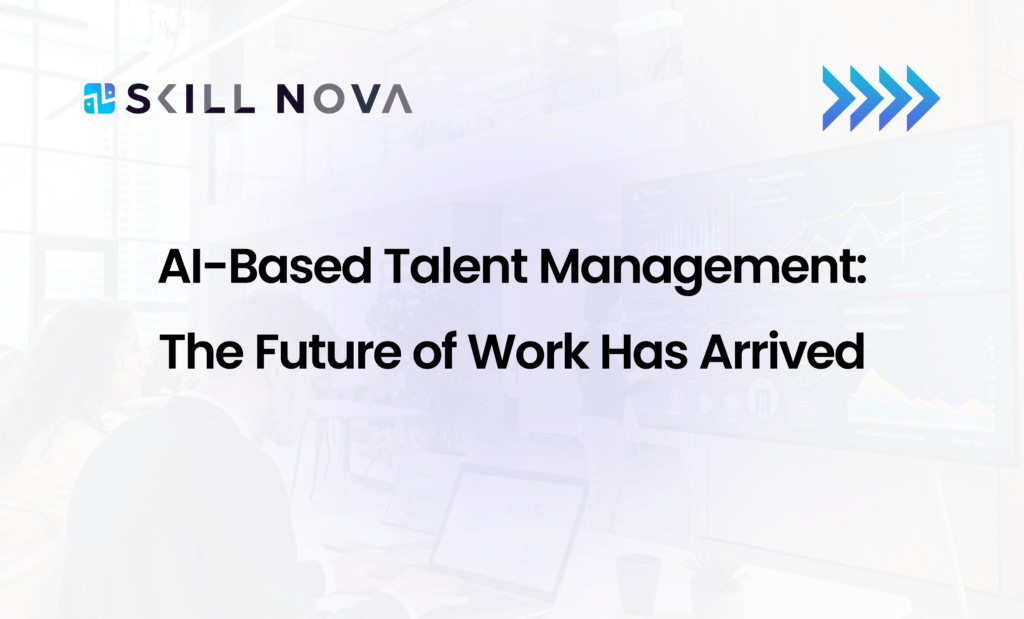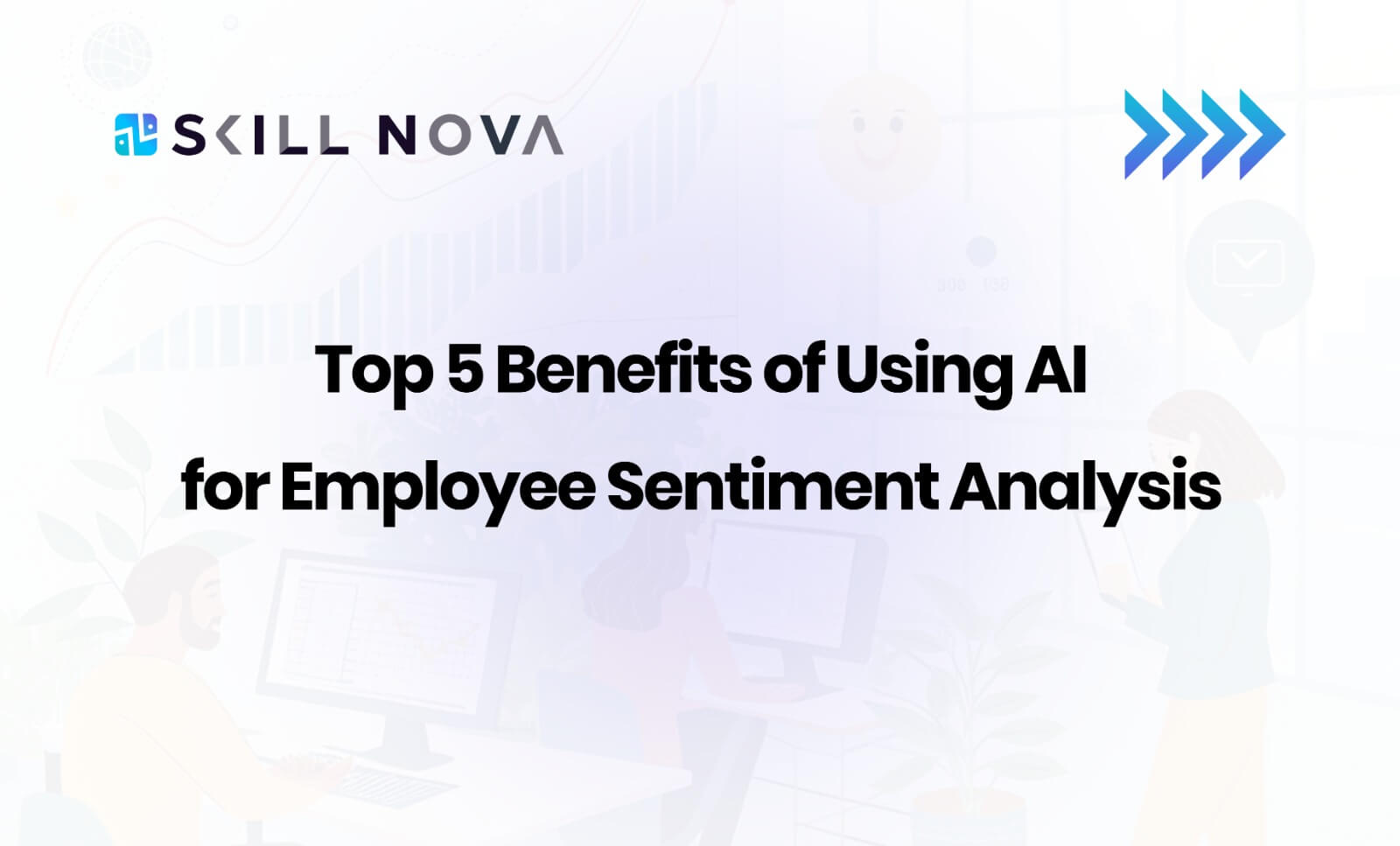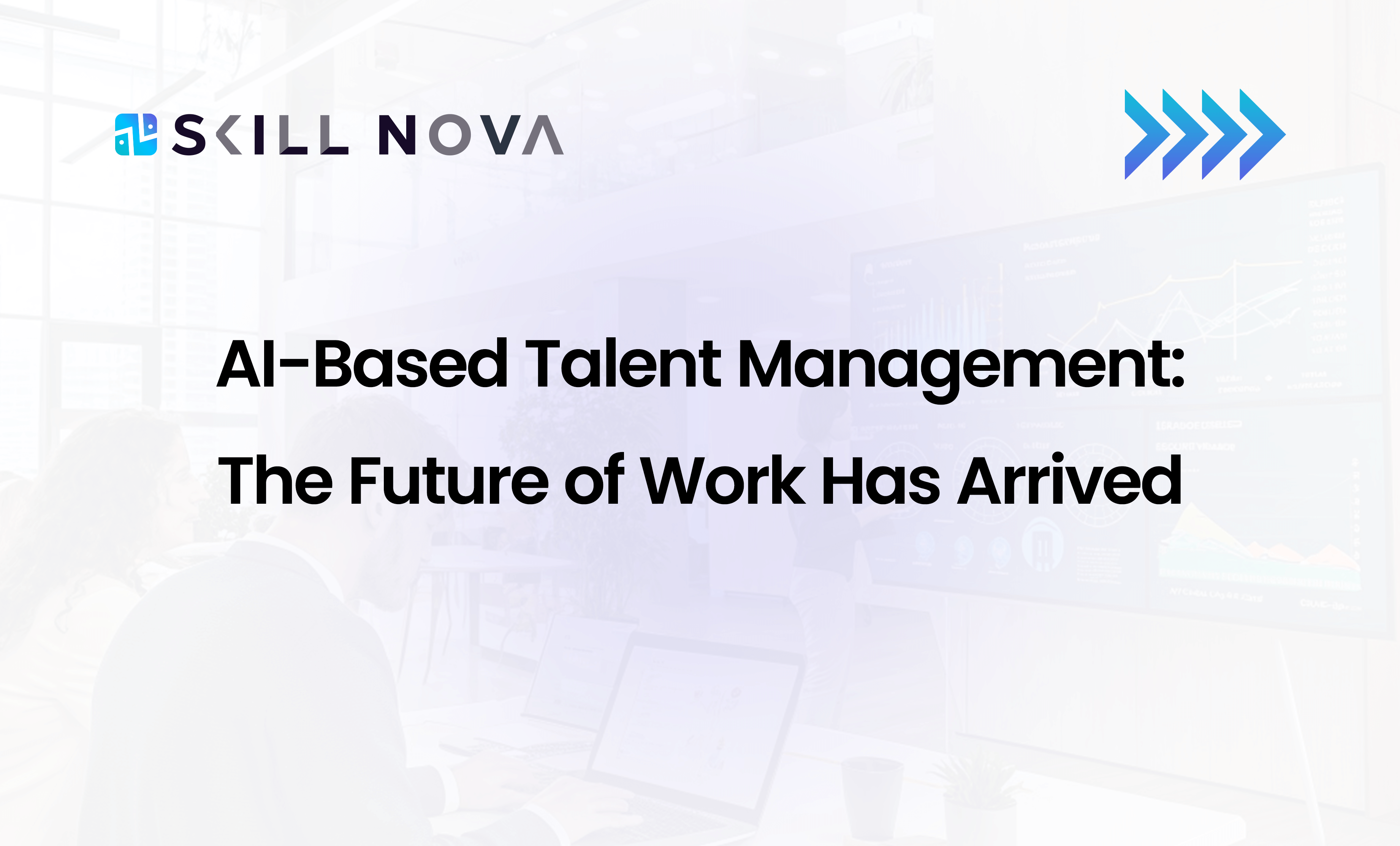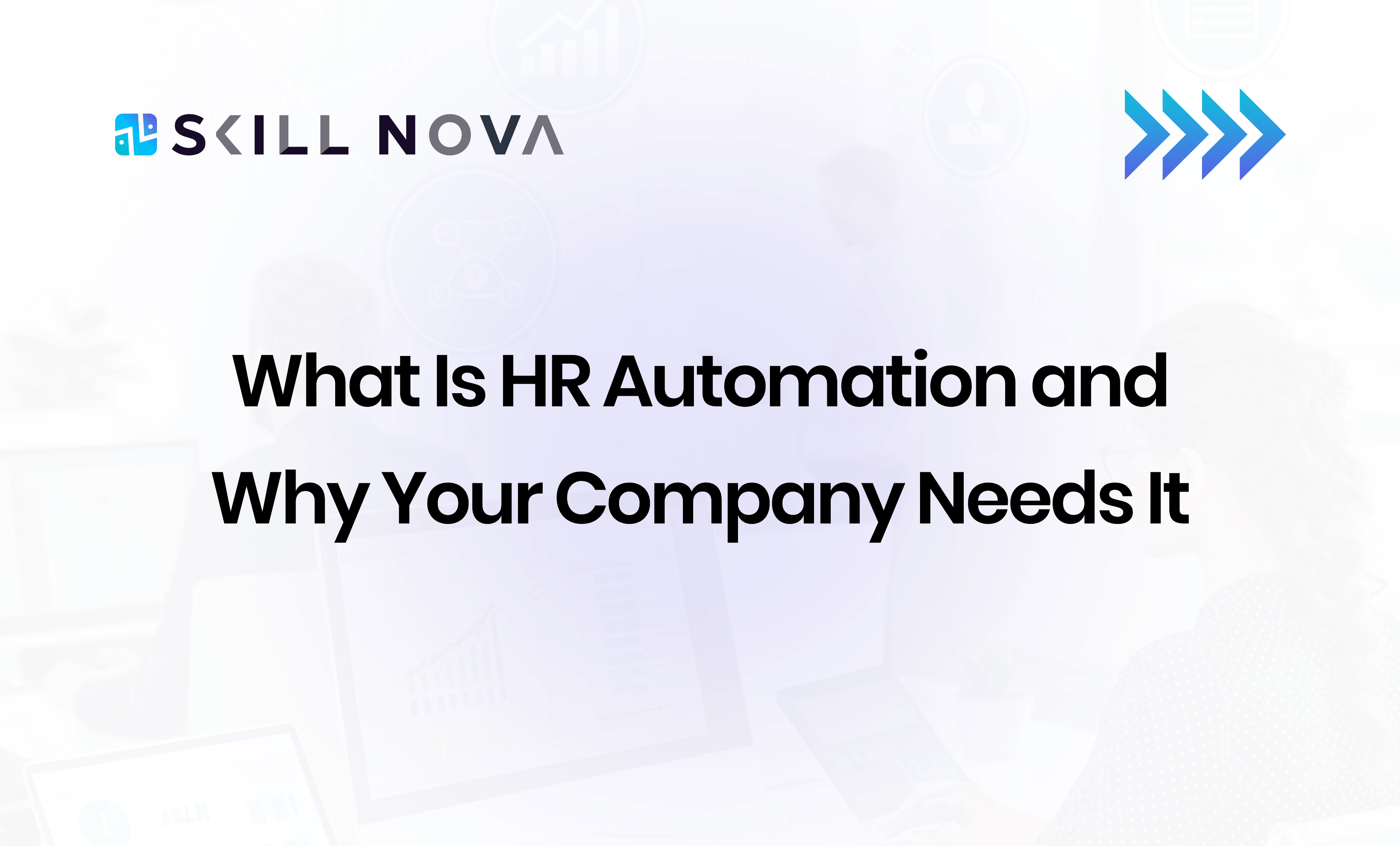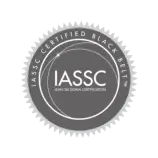Table of Contents
ToggleAI-based talent management is transforming how companies hire, retain, and grow their teams. In a world shaped by remote work, digital transformation, and fast-changing expectations, businesses must rethink how they manage people, and AI is leading the way.
This approach uses artificial intelligence to hire, train, support, and match talent more effectively. It’s faster, more accurate, and far more scalable than traditional HR methods.
“A Gartner survey reveals that 76% of HR professionals believe AI will significantly impact their field, with 38% of HR managers already using AI tools to improve talent management and boost organizational productivity.”
What Is AI-Based Talent Management?
AI-based talent management combines technologies like machine learning, natural language processing, and predictive analytics to manage every stage of the employee lifecycle. It assists with:
- Screening resumes
- Tracking performance
- Recommending training
- Predicting attrition
- Matching candidates to the right roles
It’s not just about automation—it’s about building a smarter, more personalized HR experience.
Why Are Companies Making the Shift?
The talent market is more competitive than ever. Retaining and attracting top performers is increasingly difficult.
AI helps HR teams make faster, better decisions. McKinsey reports that 56% of HR tasks can already be automated, including sourcing candidates, application screening, and basic employee queries.
“According to CIOs and leader statistics, AI can increase staff retention by 51%, improve employee performance by 27%, and enhance employee satisfaction by 24%.”
And it’s not about replacing humans—it’s about equipping them with better tools.
Key Benefits of AI Talent Management
1. Smarter Hiring
AI reviews thousands of resumes in seconds. It evaluates not just qualifications but also communication style and cultural fit in video interviews.
2. Personalized Learning
AI identifies skill gaps and suggests tailored development paths. Employees receive custom course, mentor, or project recommendations.
Companies that use AI for training report a 32% boost in engagement.
3. Predicting Turnover
AI detects early signs of disengagement—missed goals, reduced collaboration, or negative sentiment. HR teams can intervene early to retain key talent.
4. Fairer Performance Reviews
AI gathers insights from multiple sources—peers, clients, and managers—for a more balanced evaluation. This reduces bias and identifies future leaders.
5. Strategic Workforce Planning
With AI analyzing trends and performance data, HR can forecast skill demands and hiring needs, making planning more agile and data-driven.
Talent Matching: The Next Frontier
One of the most powerful applications of AI in HR is talent matching, aligning the right people to the right roles based on skills, interests, and potential.
Platforms like Skillnova are leading this space with intelligent talent-matching solutions. Their AI-driven learning platform evaluates not just what candidates have done, but what they’re capable of, enabling personalized career paths, succession planning, and smarter hiring decisions.
Whether you’re hiring for niche roles or upskilling your existing team, Skillnova’s approach to AI-powered talent matching ensures precision and long-term fit.
Comparison: Traditional HR vs. AI-Based Talent Management
| HR Function | Traditional HR | AI-Based Talent Management |
| Recruitment | Manual resume screening, slow response time | Automated screening, faster and unbiased hiring |
| Learning & Development | Generic training modules | Personalized learning paths |
| Performance Reviews | Subjective evaluations | Data-driven and multi-source feedback |
| Employee Retention | Reactive (after disengagement) | Proactive alerts and predictive analytics |
| Workforce Planning | Based on historical trends | Real-time insights and forecasting |
Challenges to Keep in Mind
AI is powerful—but not flawless.
- Bias in Data: AI reflects the data it’s trained on. Biased data can lead to unfair decisions.
- Privacy Concerns: Employees must know how their data is used. Transparency is key.
- Over-automation: Empathy, creativity, and connection still matter. AI should support—not replace—human judgment.
As Josh Bersin said, “AI is the biggest technological change in the last 100 years.”
The Rise of Talent Management AI
The World Economic Forum predicts that by 2025, AI will displace 85 million jobs, but create 170 million new ones. This demands a digitally fluent and adaptable workforce.

Source: World Economic Forum predicts that by 2025
Looking ahead to 2030, 40% of new skills will be required for most roles. Companies that embrace AI-driven hiring and talent development will stay ahead.
AI will play a role across the entire employee journey—from onboarding to retirement, offering insights, personalization, and real-time support.
But success will depend on balance. The best companies will know when to use AI and when not to. Human connection remains the heart of any great workplace.
Final Thoughts
AI-based talent management isn’t just a trend—it’s a blueprint for the future of work. It allows HR teams to shift from reactive to strategic. From generalized to personalized. From guesswork to precision. And in an economy where talent is the true competitive advantage, that’s powerful. Start exploring tools like Skillnova for AI-powered talent matching, workforce planning, and smarter hiring decisions. The future of work isn’t waiting, and with the right strategy, neither will your business.
